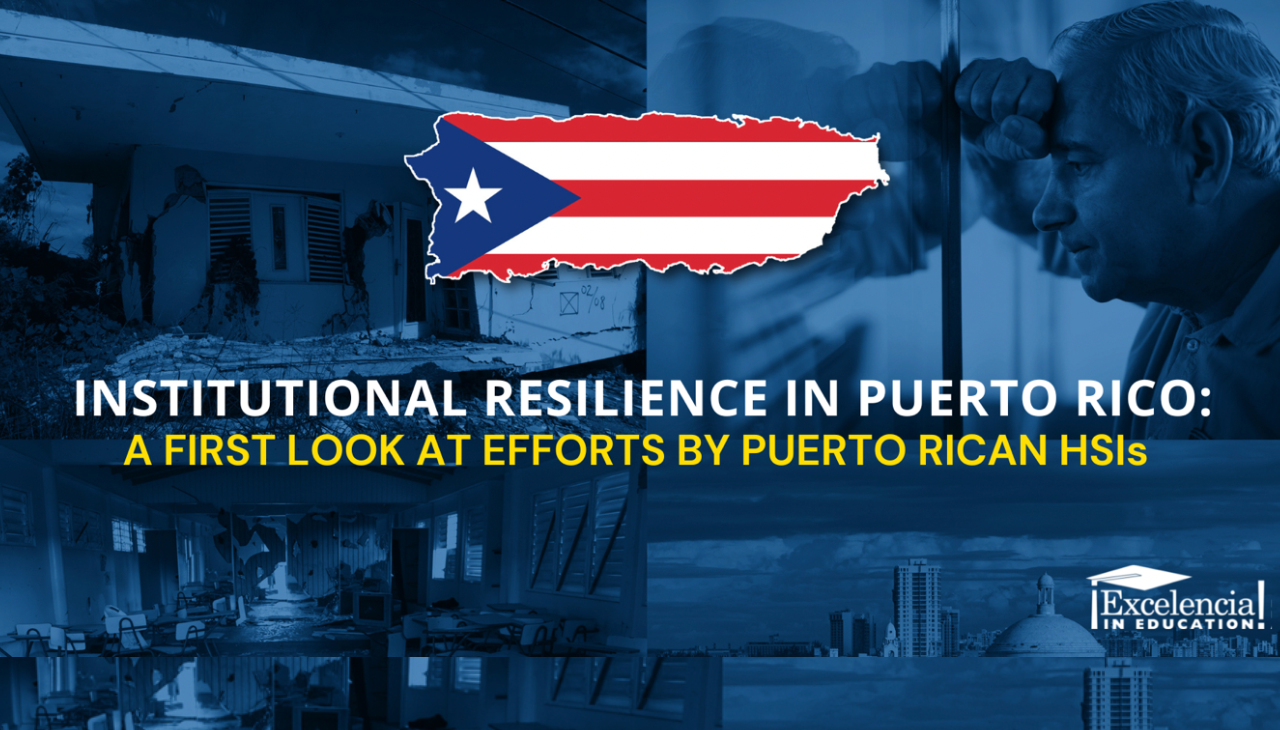
Excelencia in Education releases brief about the resilience of Puerto Rican HSIs
It identified four strategies developed by institutions in response to these challenges in the island.
This morning Excelencia in Education launched a first look at “Resilience of Hispanic-Serving Institutions (HSIs) in Puerto Rico.” The analysis on five different HSIs examined the resilience by colleges and universities in the island during natural disasters, fiscal challenges, demographic and government changes, and COVID-19.
The publication was developed considering the context and conditions of higher education in Puerto Rico, a territory of the United State. At the same time that retention rates have increased in the last 10 years, enrollment has dropped 25%. And, even though the cost of attending all education sectors has increased in the last 20 years, graduation rates at private four-year institutions have also gone up.
There are currently 61 HSIs in Puerto Rico — including public two and four-year institutions, and private not-for-profit institutions. The HSIs interviewed for this publication were: the Inter American University of Puerto Rico-Arecibo, Universidad Ana G. Méndez-Gurabo, University of Puerto Rico-Mayagüez, University of Puerto Rico-Río Piedras, and University of Puerto Rico-Utuado.
RELATED CONTENT
According to Excelencia, these institutions have shown resilience through earthquakes and hurricanes, out-migration of the young and working-age population, significant fiscal austerity, unexpected elected and institutional governance/leadership changes, and an ongoing health pandemic.
In order to thrive in the middle of all these factors and in such a short period of time, it required the institutions to develop some strategies. The publication identified four:
- Sustaining institutional management through academic and administrative restructuring to address fiscal constraints;
- Managing enrollment plans and expectations by pivoting recruitment, expanding offerings to mainland students, and utilizing new mediums such as social media;
- Supporting students by meeting basic needs and providing wraparound services, including mental health counseling, meal access, and additional financial support;
- Preparing students for graduation and post-completion, connecting them to Puerto Rico’s workforce and opportunities to continue their education at the graduate level;
To read more about the brief, click here.











LEAVE A COMMENT:
Join the discussion! Leave a comment.